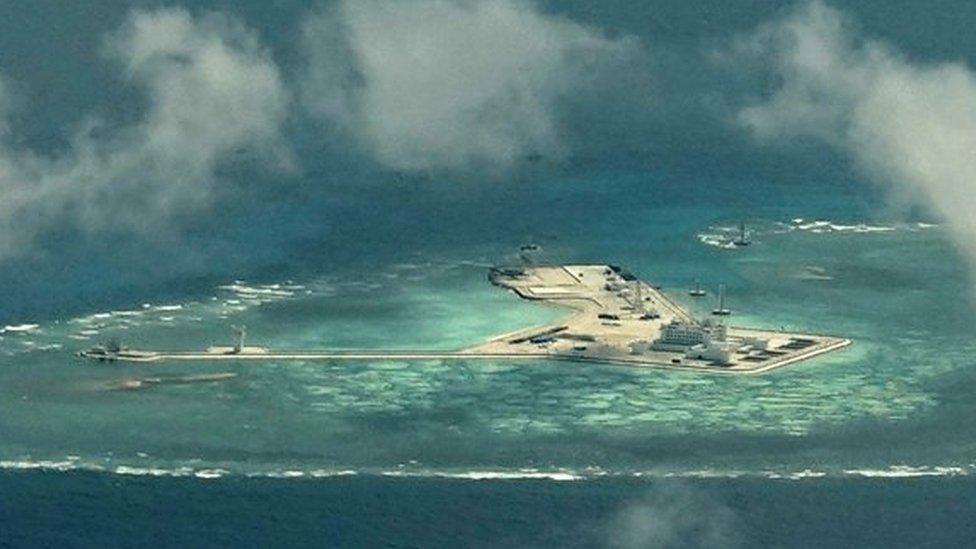South China Sea: China's charm offensive in the foreign media
- Published
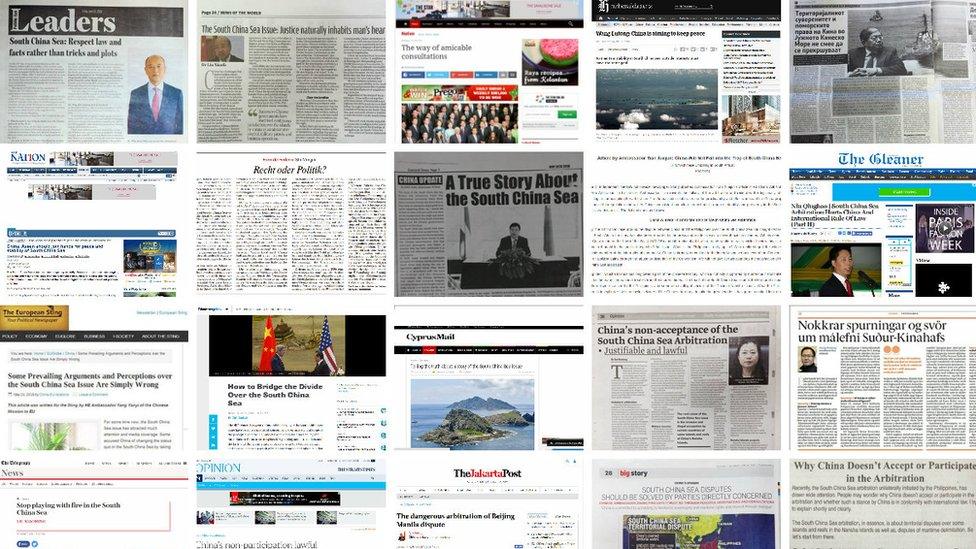
A selection of the opeds published by Chinese ambassadors in the foreign press
With an international court set to rule on China's territorial claims in the disputed South China Sea, Chinese ambassadors have been on a flurry of charm offensives in foreign media over the last few months.
It is widely expected that the ruling in the case brought by the Philippines will go against China, but that hasn't stopped its ambassadors making a push to convince the world that China is in the right.
English-language state media has released cutesy English-language videos, external discussing the history of the area and has entire website sections, external dedicated to analysis and discussion of the issue.
But over the last few months, Chinese ambassadors across the world have been targeting the foreign press as well, writing signed articles in national newspapers to put forward China's case.
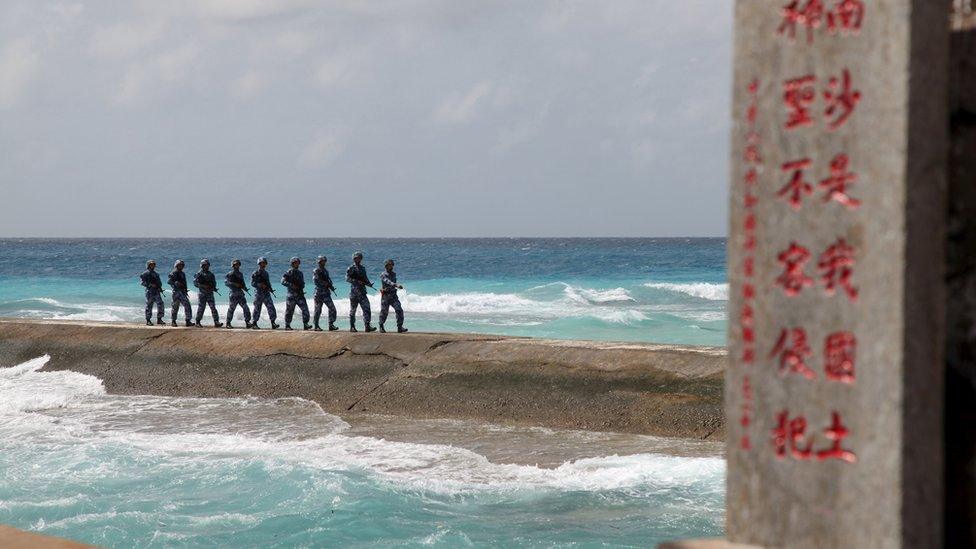
Soldiers from the Chinese navy on patrol in the Spratly Islands, known in China as the Nansha Islands

South China Sea arbitration case
The Philippines has gone to the Permanent Court of Arbitration in The Hague to ask for a technical ruling about the extent of the territorial waters that can be claimed on the basis of the possession of various coastlines, islands and rocks.
The ruling is not widely expected to favour China, and may even go so far as to invalidate its most expansive claim - the "nine-dash line" that encompasses up to 90% of the disputed Sea.
China has said it will neither take part in the tribunal nor accept the authority of its ruling.

The articles are not identical, although it would be fair to say that they are very similar. Unsurprisingly, they all adhere strictly to the official government position on the dispute.
It's perhaps no shock that the Chinese ambassadors to regional players like the US and Australia might be keen to make their case to the people of the country they're stationed in. They have done so in the past, external and so it makes sense that with the judgement due on 12 July, they are doing so again., external
You might wonder what influence small countries like Cyprus, thousands of miles away from the action, might be expected to have though.
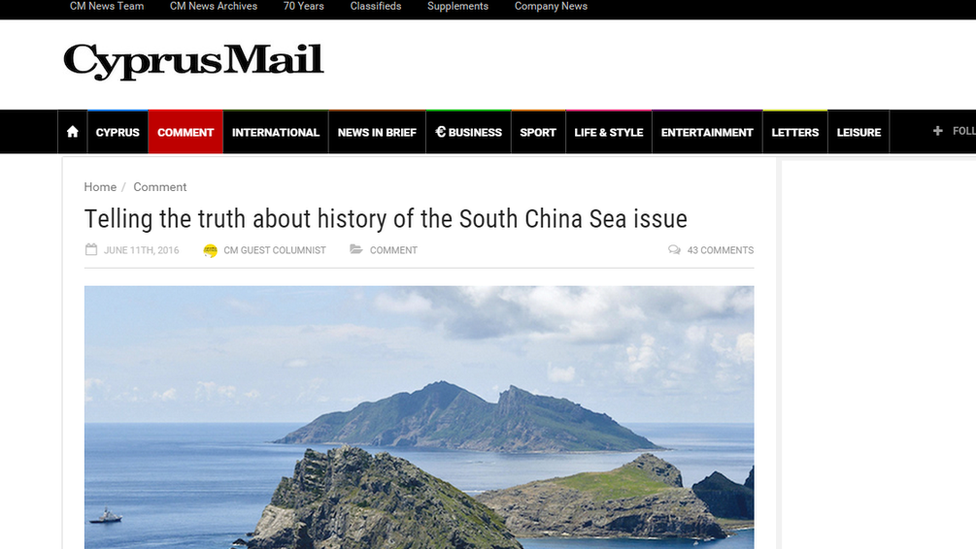
An article written by the Chinese ambassador to Cyprus, which appeared in the Cyprus Mail

Global reach
Some of the countries the signed articles have appeared in:
Singapore, external, Indonesia, external, Thailand, external, New Zealand, external, Malaysia, external, Fiji, external, Australia, external
Cyprus, external, UK, external, Iceland, external, Macedonia, external, Germany, external, France, external
Kenya, external, Lesotho, external, South Africa, external, Ghana, external, Sierra Leone, external

So what's the big deal? The job of an ambassador is to promote the interests of their home country abroad, after all.
"In the past, there were such media pushes, but usually only to accompany visits of Chinese leaders to specific countries. It is rare to see this sort of global approach," says Professor Kerry Brown, an expert in Chinese politics from King's College London.
"It is almost certainly a concerted push from the centre to have ambassadors and representatives write these, and to proactively send out such messages."
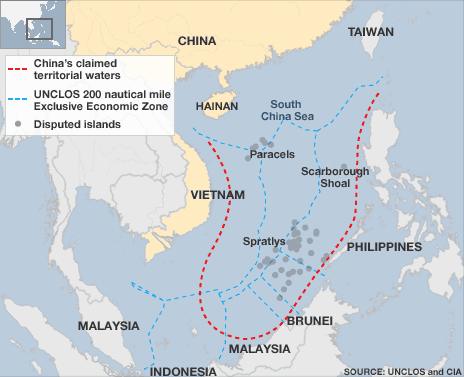
The BBC contacted several Chinese embassies to ask if the articles were centrally commissioned. Only one - the Chinese Embassy to the UK - replied, but did not respond directly to the question.
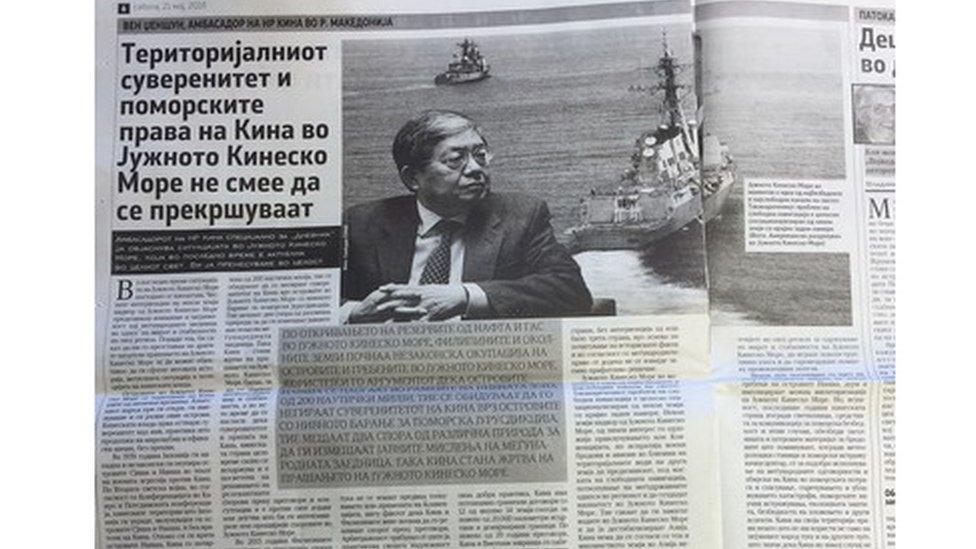
An article written by the Chinese ambassador to Macedonia, which appeared in the daily 'Dnevnik'
Templated?
Many of the articles start with a general observation such as this one: "The South China Sea issue is a hot topic nowadays in the international media" (from the Fiji Sun) or this: "In recent times, the South China Sea issue has caught the international limelight" (from the Cyprus Mail.)
They then go on to make the following points:
- There is misinformation and/or misunderstanding around China's claims
- The islands (called Nansha islands by the Chinese) have been China's since ancient times
- The arbitration process was started unilaterally by the Philippines
- Bilateral, local negotiations are the way forward
- Territorial sovereignty is not within the scope of the UN Convention on the Law of the Sea (UNCLOS)
Some take the form of essays, whilst others are divided into bullet points.
It's tempting to view them as being templated, but it could just be that they all closely follow the official government rhetoric on the matter, which might be expected on such a sensitive issue.
There are some regional variations - the Chinese Ambassador to the UK, Liu Xiaoming, is far more forthright when he warns "Stop playing with fire in the South China Sea," whereas an article in the Malaysian Star calls for the Malaysian approach to the South China Sea to be used as a model for other disputes. (Malaysia also claims islands in the area but is far less vociferous about its claims than countries like the Philippines.)
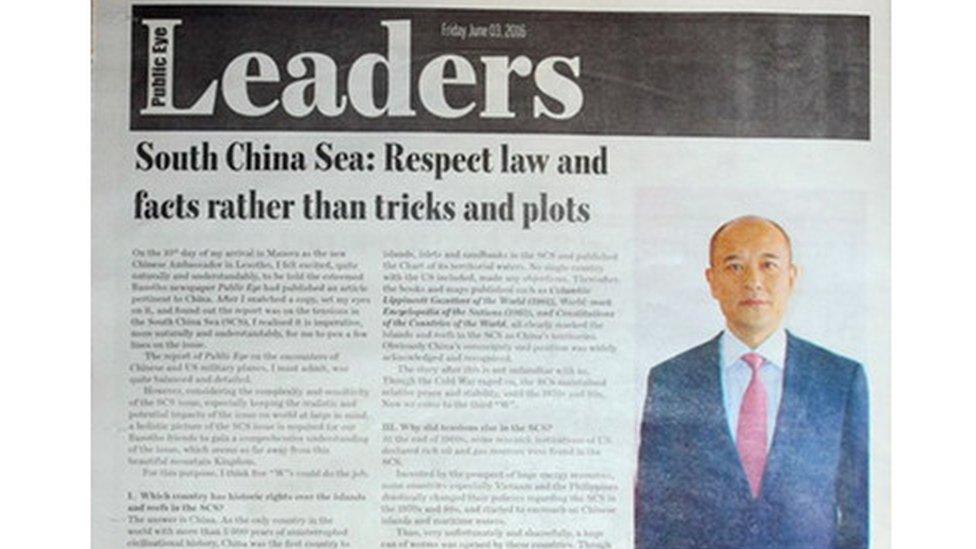
An article written by the Chinese ambassador to Lesotho, which appeared in the Public Eye of Lesotho
These articles fit into a wider pattern of China wanting to demonstrate that international opinion is on their side - or at least, that some of it is.
China has shown no pickiness in who it's courted for support in the South China Sea dispute - the government claims that more than 40 countries have offered China their backing.
That list also includes geographically diverse and distant countries like Sierra Leone and Slovenia.
"[These articles] show firstly just how nervous China is about the impact of the ruling when it comes, and also how much more proactive their attempt is now to use the western press and media to get their message across," says Kerry Brown.
"I suspect we will see more of this."
- Published19 June 2016
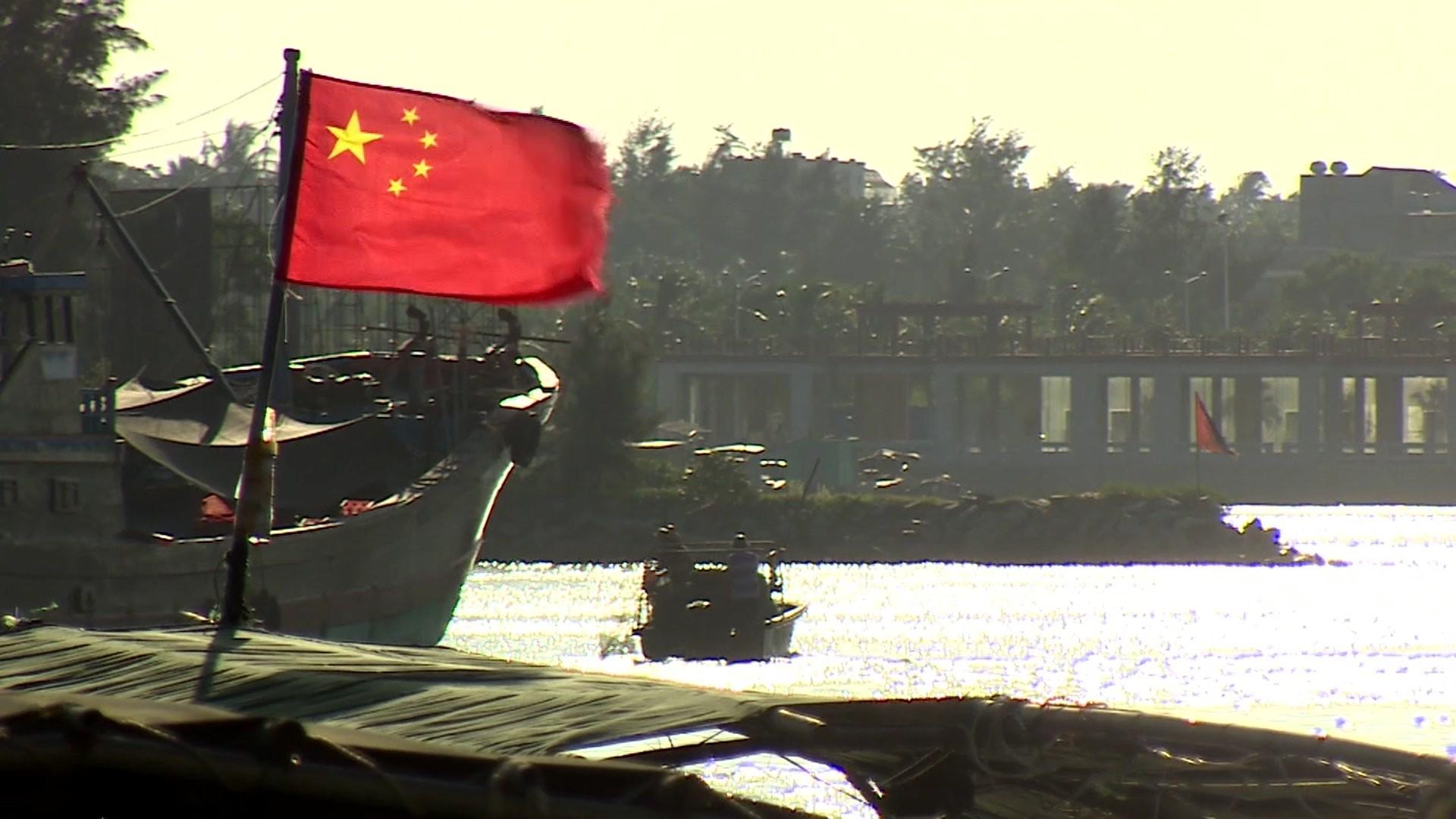
- Published7 July 2023

- Published19 February 2016

- Published14 December 2015
